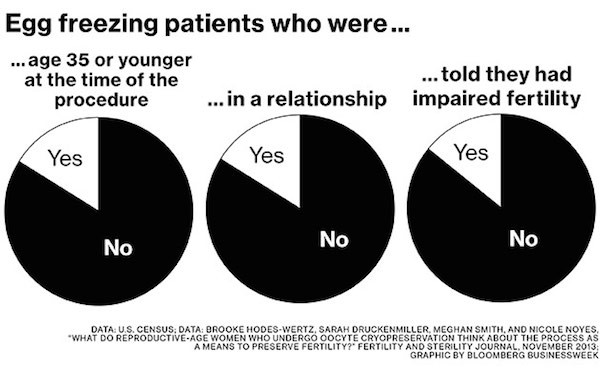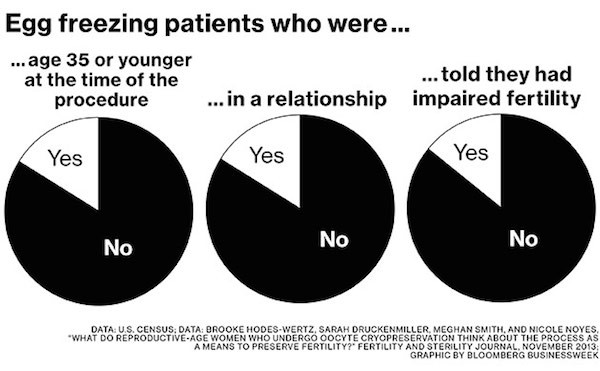This College Graduation Season, Give the Gift of Eggs

Not since the birth control pill has a medical technology had such potential to change family and career planning. The average age of women who freeze their eggs is about 37, down from 39 only two years ago. (“Desperation level,” as Brigitte Adams, a marketing director at a Los Angeles software company who froze her eggs at 39, puts it.) And fertility doctors report that more women in their early 30s are coming in for the procedure. Not only do younger women have healthier eggs, they also have more time before they have to use them.
Imagine a world in which life isn’t dictated by a biological clock. If a 25-year-old banks her eggs and, at 35, is up for a huge promotion, she can go for it wholeheartedly without worrying about missing out on having a baby. She can also hold out for the man or woman of her dreams. Doctors hope that within the next 30 years the procedure will become a routine part of women’s health, and generous would-be grandparents will cover it as they would a first-mortgage down payment. “If you’re going to give your daughter a college graduation gift, what would you rather give her — a Honda or the chance to make a decision about when she’s ready to have a baby?”
Businessweek’s cover story this week is on egg freezing, a practice that reporter and Hairpin pal Emma Rosenblum notes early on is so far limited to a certain subset of the female population: women are freeze their eggs tend to be “great at their jobs, they make a ton of money, and they’ve followed all of Sheryl Sandberg’s advice.” Also worth noting, according to the chart after the jump, is that most don’t have partners:
